Forty-five years on I still have nightmares featuring a Leaving Cert Honours Maths exam. A version of that dread must visit politicians every election day. By this time tomorrow morning they will know if employment is secure for another phase or if they have been let go.
In our professional or personal life none of us enjoys being admonished or deemed surplus to requirements. The hurt goes many layers deeper if the rejection is delivered in a very public way.
That's the space politicians will occupy when the counting begins at 10pm tonight.
By the time Miriam O’Callaghan, Bryan Dobson and David McCullagh close RTÉ’s special programme of Westminster Election coverage tomorrow morning, thousands of candidates will be processing the stark reality that they have been shunned by the electorate.
Northern Ireland has 102 candidates contesting its 18 Westminster seats. That means 84 contestants - five out of every six - plus their families, friends and party members will be pouring over their "what might have beens".
It's not a one-in-six chance of success equation. In two constituencies - North Belfast and East Belfast - there are just three candidates. Strangford, where the DUP's Jim Shannon is a shoo-in, has the most crowded field - eight.
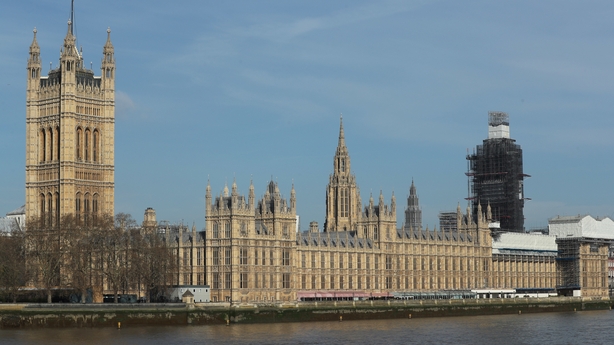
In the June 2017 election the SDLP was annihilated - its three MPs, all of them former party leaders, lost their jobs.
Sinn Féin’s Elisha McCallion ousted Mark Durkan in Foyle and Chris Hazzard beat Margaret Ritchie in South Down. The third SDLP loss was the defeat of Alasdair McDonnell by the DUP's Emma Pengelly in South Belfast.
The Ulster Unionists also lost their two Westminster seats when the DUP's Paul Girvan defeated Danny Kinahan in South Antrim and Sinn Féin's Michelle Gildernew outpolled Tom Elliot in the "in again-out again" battleground of Fermanagh-South Tyrone.
So June 2017 was a success story for the DUP, (up two seats to 10) and Sinn Féin (up three seats to seven). And it was a down and out election for the SDLP - with all three gone - and the Ulster Unionists - with all two gone.
It was also the election where the Westminster maths turned the previously barely relevant DUP into essential Westminster kingmakers.
Their new found popularity, providers of the support required to prop-up a minority Conservative government, meant the DUP became a Westminster-centric party. The home parish, Stormont-in-cold-storage included, ceased to be important.
Some Key Questions
So many strands of what will unfold over the next 24 hours deserve attention.
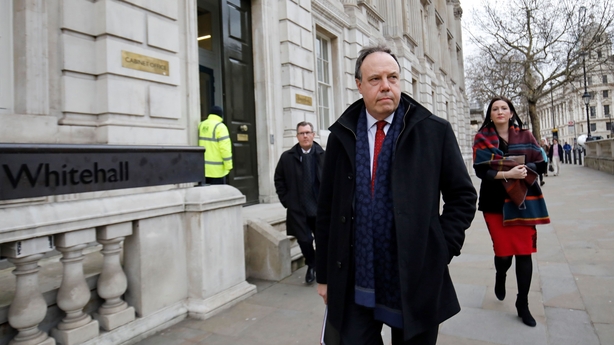
Will the DUP's deputy leader, Nigel Dodds, lose his seat to Sinn Féin challenger John Finucane in North Belfast?
Pacts have cleared the field to leave just one other candidate in the constituency, Alliance candidate Nuala McAlister.
It has been a bare-knuckle campaign and will come down to who is better at getting out the vote.
If Nigel Dodds loses, there could be career options for him in the House of Lords. Or in the Assembly where the DUP may have two vacancies - if MLA Carla Lockhart succeeds retiring party colleague David Simpson in Upper Bann and Alex Easton win the North Down seat being vacated by Independent Unionist Sylvia Hermon.
If Nigel Dodds loses, will he swallow hard and encourage his leader, Arlene Foster, and his party to make a peace of sorts with his Sinn Féin conquerors and press ahead with efforts to restore power-sharing? Or will he be sore? And if he is bruised, what might be the consequences of his unhappiness?
Will the SDLP make a comeback after the 2017 wipeout?
Clare Hanna seems capable of ousting the DUP's Emma Pengelly in South Belfast, a mainly Remain constituency in the Brexit Referendum. Relations between the Hanna camp and supporters of former SDLP leader, Alasdair Mc Donnell, were often strained. But he would probably take satisfaction from her winning the seat that he lost two years ago.
The second SDLP possibility - Foyle - is a closer call. Elisha McCallion harnessed the wave of sympathy and support after the death of Martin McGuinness in 2017. But as SDLP leader, Colum Eastwood knows the wider significance of this contest.
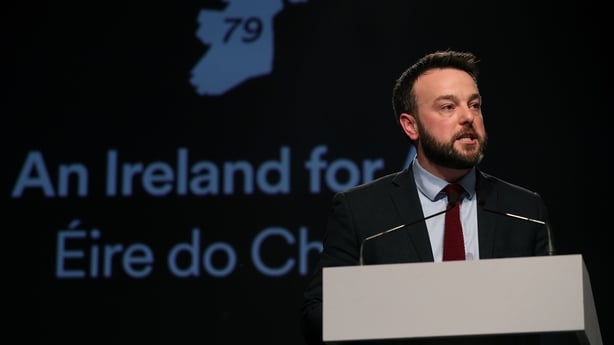
If he wins, he and Clare Hanna could become the voice of nationalism on the Westminster floor and he would also probably vacate the SDLP leadership and open the way to the likes of Nicola Mallon succeeding him.
If he fails to convince the Foyle electorate that SDLP Westminster participation is preferable to Sinn Féin abstentionism, then his leadership qualities as well as his ability to attract votes will come under scrutiny.
Will the Sinn Féin revival continue?
Mary Lou McDonald and Michelle O'Neill have struggled as the successors of Gerry Adams and Martin McGuinness. On their watch Sinn Féin experienced three poor election results south of the border - their numbers were down in the Presidential contest, they nosedived in the local elections and lost two out of three of the European Parliament seats.
In Dáil Éireann there is no indication of courtship gestures from Fianna Fáil or Fine Gael benches. In Northern Ireland the partnership that could make international headlines, an Arlene Foster-Michelle O'Neill led government, has not materialised.
South of the border Sinn Féin’s opponents constantly accuse them of being phantom politicians - Abstentionists in Westminster and Absolutists at Stormont, unable to make compromises with their rivals. It's the kind of harsh assessment that sometimes sticks.
Sinn Féin's recent by-election result in Dublin Mid-West two weeks ago, where Councillor Mark Ward topped the poll, was the bounce it craved.
The sitting Sinn Féin TD, Eoin Ó Broin, worked the terrain well. He once was a member of Belfast City Council so he has first-hand knowledge of the 32-county character of the party. He will recognise that tomorrow's Westminster results could provide Sinn Féin with the opportunity to build momentum as it prepares for what will be a very important test for the party - the upcoming general election in the Republic of Ireland.
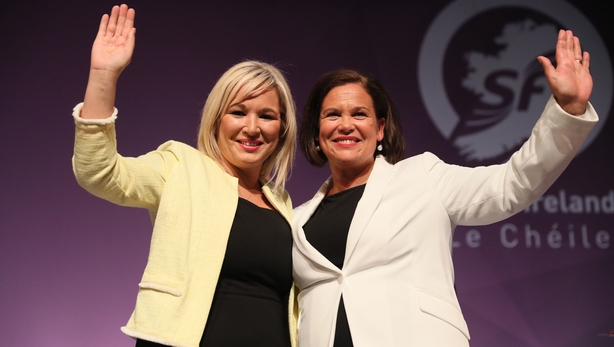
In these Westminster elections Sinn Féin didn't contemplate altering its abstentionist stance. It pushed the case of its track record on Brexit - border poll within five years included. It holds seven Westminster seats - winning North Belfast from Nigel Dodds would be a sensation. Losing Foyle to the SDLP's Colm Eastwood would hurt deeply. Fermanagh and South Tyrone is always difficult to call - the old Bobby Sands seat.
The party would need to be having a very bad day for Ulster Unionist Tom Elliot to topple Michelle Gildernew.
Significantly Mary Lou McDonald briefed Dáil members and others in recent days that Sinn Féin will be turning its attention to the return of Stormont once the Westminster elections are over.
DUP leader Arlene Foster and Michelle O'Neill made identical comments signalling Stormont talks, on RTÉ News on Tuesday night.
A good Westminster election result and Michelle O'Neill co-leading a revived power-sharing executive could transform the Sinn Féin sales pitch in the general election campaign that will kick off in the New Year.
Leo Varadkar might take some quiet satisfaction from such a turn of events. A reengerised Sinn Féin machine led by Mary Lou McDonald, knocking on doors and pitching for votes could spell competitive pressure for Fianna Fáil, not Fine Gael.
My enemy’s enemy...
What impact will the smaller parties make?
Naomi Long, the leader of the Alliance party, is probably Northern Ireland's most popular politician. But Alliance has two major problems - it is coming from a small base and it can't clone Naomi Long.
It made significant progress in Northern Ireland's local elections. Ms Long built on that progress by winning one of Northern Ireland's three European Parliament seats, defeating Ulster Unionist candidate Danny Kennedy and taking the position held by his colleague Jim Nicholson for 25 years.
But even though she is running in the East Belfast seat she won from the then DUP leader Peter Robinson in 2010, Ms Long may struggle to defeat the current sitting DUP, Gavin Robinson. His affability and availability are acknowledged by many of his rivals.
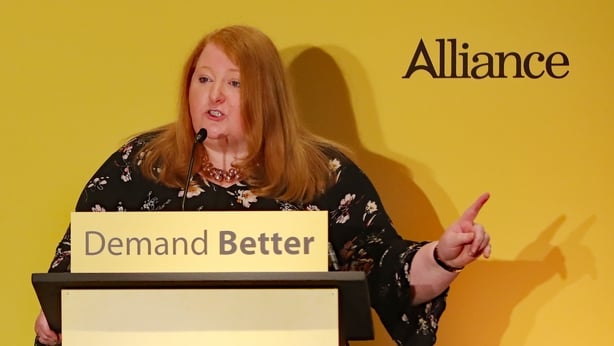
Alliance Deputy leader Stephen Farry shares those Gavin Robinson qualities. He is running in North Down. His chances can't be written off but the DUP's Alex Easton is favourite to replace the retiring Ulster Unionist, Sylvia Hermon.
The Ulster Unionist party has a new leader, Steve Aiken, who unlike some of his predecessors, is comfortable in a combative role. Its best chances may be in South Antrim where the affable Danny Kinahan is trying to recapture the seat he lost two years ago and in Tom Elliot's efforts in Fermanagh and South Tyrone.
Aontú is running seven candidates and its founder, Peadar Tóibín, has a path worn from his Meath West Dáil constituency to the border and beyond in recent weeks. His greatest chance of upsetting his former Sinn Féin colleagues may come in the Foyle constituency where retired GP, Dr Anne McCloskey, could garner significant numbers of votes.
Sinn Féin’s stance on abortion was one of the main reasons why Peadar Tóibín left. Aontú shares the Sinn Féin on abstentionism at Westminster: The Aontú stance on abortion will be a factor in the party’s performance.
The hard realities and the big picture
Beyond the big two - the DUP and Sinn Féin - all the other parties down to People Before Profit, the Greens and the Conservatives are curtailed by the reality that this is a "first past the post, single-seat constituencies" election.
There are no transfers and no room for nuance or subtlety. A candidate seeks to get out in front and sprint to the finishing line. The winner takes all. There are no silver, bronze or rubber medals.
As the results begin to emerge, the Northern Ireland figures will feed into the bigger Westminster picture. If Boris Johnson gets sufficient numbers, he won't need the DUP.
That would leave Arlene Foster and her party free, in fact with little choice, but to concentrate on efforts to restore power-sharing at Stormont.
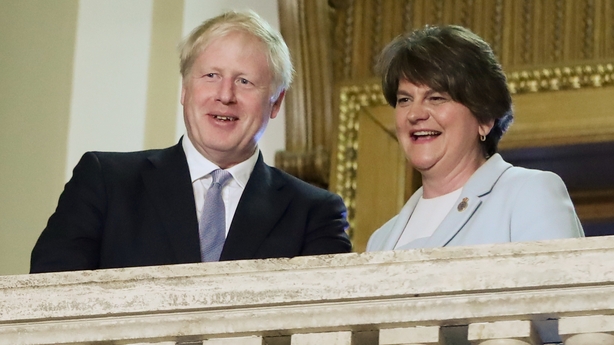
If the Tories come unstuck and are forced to come cap-in-hand to the DUP again, then the Brexit deal struck by Boris Johnson with the EU27 is in danger and we're back to chaos in UK-EU relations, with Ireland vulnerable once more.
If Jeremy Corbyn proves he is Batman in disguise, then a new version of stew is on the table.
In the case of a Johnson triumph, watch to see if he dumps or retains his Northern Ireland Secretary, Julian Smith.
The arrival of a newcomer would stall the pace of talks about the restoration of power-sharing.
And keep an eye on Scotland.
If the SNP's Nicola Sturgeon routs the Tories, no longer led by Ruth Davidson, she is likely to push the throttle on the Scottish Independence issue.
The SNP is heading into very challenging territory with internal party issues.
A new debate about independence could be a useful distraction. Northern Ireland unionists will know the potential long-term consequences of taking the Larne ferry to Rangers-Celtic matches in an EU member state.






